On War
Políticas para la guerra
Rob Riemen, Paul Wolfowitz & more
What lies behind the armed conflicts that are currently devastating Syria and Ukraine? To what degree should foreign powers intervene? Is war inevitable? In the following panel discussion, Rob Riemen, Director of the Nexus Institute, moderates well-known politicians and intellectuals on the topic of war and its myriad dilemmas. This talk took place within the context of the recent Nexus Conference titled War and Peace. (The original transcript of this event has been edited for length).
***
Jean-Marie Guéhenno: The fundamental issue is actually this word “freedom”, which has so many definitions, ancient and modern. Maybe I’m old-fashioned, but I believe that freedom to survive, to endure must have content; it must be freedom for something you can define in books. And what we have seen since 1989 is a great vacuum in that respect–including in countries that have been liberated, so to speak, from dictatorships.
There was this idea that the invisible hand of the market would save all of us, as free individuals; that it would give us an answer to all of our issues–including the moral ones. And that has not been the case. What we have seen is a kind of death of politics, in that respect, because politics has been discredited by the “isms” that destroyed the 20th century. And now, in a way, politics is coming back under different guises. When we see these horrible extremists of the Islamic state, they’re occupying the vacuum of values, as are many movements around the world. And that is what is dangerous. I think if we want to get out of the Dark Ages, we need to have a more positive and clear view of ourselves. If we are not able to define who we are, then others will do it against us. And then we will be in trouble, as we are now.
William Fallon: We all have to get engaged, particularly those of us who share these ideals of humanism and freedom. These things that we hold quite dear, they’re not going to continue, in my opinion, if we just take them for granted and assume that things will continue, that people will take an enlightened view and somehow, it will all work out. It will only work out if we take active steps to do just that. I think that right now, at this stage–and I’ll speak for my own country–we have a lot of work to do. We have a huge responsibility, in my opinion, to use the leadership that we have been granted by many in the world, that we have assumed. We have a responsibility to use it wisely, actively, and correctly. And if we’re going to do that, then we in the U.S. need to have credibility. We have lost a lot of our credibility for many reasons in the last decade or two. We need to regain it.
Dan Diner: Where is Germany going? Will Germany stay, if the conflict with Russia of Western Europe and the United States heats up? Because I have the feeling that Germany today is very uncertain and very uneasy about present developments. If you will allow me a micro-perspective on German affairs: suddenly, a new party popped up, the Alternative for Germany [Alternative für Deutschland], and immediately gained 10%, or even more, of the vote in regional elections in Saxony, Thüringen, and Brandenburg. And that party is very reluctant concerning European integration, especially the Euro. They are, interestingly enough, pro-Russian, and they combine this with being critical of European degradation, especially the Euro–which brought about German domination in Europe!
Rob Riemen: If you were President Obama, what would you do?
Lilia Shevtsova: I would try to address the American nation and the world. I would try to play Pope Francis, urbi et orbi. First of all, I would try to create the impression that I’m not leading from behind. Secondly, I would try to say to ordinary Americans, in very simple words: “Folks, you know what? We have the reached the tipping point.” I would say, “We are in a disaster already, because the international order is unraveling.” And I’m very glad that Jean-Marie will try to reenergize it, but you know, shit is coming. And we cannot rely upon the global government, because it doesn’t exist. The Security Council is blocked by the right to veto. And the whole structure, the whole architecture is a leftover of the Second World War. That was a long time ago, and all the principles have been undermined recently. There was the Westphalian state, the Yalta Agreement, the Helsinki Agreement, and so on. Now none of that exists.
And my second thought would be to reintroduce the dimension of values into foreign policy. Everybody, especially after Iraq, I’m sorry to say, forgot about values. As if it were a kind of leprosy, or whatever. But I would try to persuade the world to listen to this issue of values. When the American President says “values”, it sounds something like regime change. Because everyone understands that America is like a duck in a very small room with glass windows, and every time it wakes, the tail breaks the windows. So I would talk about humility.
And thirdly, I would try to formulate the idea of returning America to Europe and reviving transatlantic partnership. Maybe without words–and by the way, I like the words “consent of democracy,” but maybe not everybody would accept this term. And I would return to the tradition of the Marshal Plan. In order to persuade the Americans and the world–which is suspicious of Americans, the world does not like Americans for many reasons–I would try to do something practical. I would present the idea of giving Ukraine the status of “American ally” without waiting for NATO membership. I would find, and I can find, persuasive arguments so that President Putin will agree to the peace-keeping forces along the border of Ukraine and Russia that are consistent with non-allied nations.
James Rubin: Essentially, the idea is that difficult things won’t happen without America’s playing a leadership role. Easy things can happen. We can solve certain trade rules, certain problems. But when something difficult comes along, American leadership is indispensable. This doesn’t mean that America can do it all by itself. It doesn’t mean that America is the policeman. But I think we’ve gone through a pendulum swing over the last, say, fifteen years, and we’ve reached this point where America thought–with all due respect, Paul–that it could reach across the world 10,000 miles and overthrow a regime. Whether you agree that it was the right thing to do or the wrong thing to do, we did it badly. We lost respect both for the decision to do it, but also for the fact that we did it badly. It took years and years of slogging on the ground to end up with the Islamic State, and we have to go back and figure out what to do. And that’s ten years after the invasion. So whatever you think of the decision to go in, whatever you think of Saddam Hussein, this was not a highly competent operation.
Afghanistan, Kosovo, World War II, the Korean War –America’s military power was highly respected. Deterrence was working: before we invaded Iraq, Iran was rushing to make a deal with us. We lost all that. And that’s the terrible tragedy that has made our indispensable nation more difficult to operate. And that’s the real tragedy of Iraq: right or wrong, it has ruined America’s self-confidence and other countries’ confidence in America.
There was a time when America was able to gather together a group of democracies, and deal with mass murder in Kosovo, overthrow Milošević. And we prevented genocide, we had a post-war plan, and we had legitimacy. That’s what “indispensable nation” means. It doesn’t mean reaching out 10,000 miles and overthrowing a regime. On the other hand–and this is where the pendulum problem is–it also doesn’t mean pulling out of Iraq without thinking through the consequences. Putting troops into Afghanistan and pulling them out before you even finish getting them in. Trying to lead from behind in Libya. I think Paul Wolfowitz was right–we didn’t need to lead from behind in Libya. We didn’t need to create a new theory so that America, the leader of NATO, would allow Britain and France to take the lead. They did a really good job in using military power to overthrow Qaddafi. But then: Nothing.
You needed to make a deal with the rebels that if we give you some air power, you have to be prepared to put your weapons down when we succeed. We need to have a peacekeeping force; we need to have a post-war plan. Then America could be the indispensable nation, could guide NATO, and Libya wouldn’t have been a disaster because the rationale was there. We prevented a terrible atrocity from happening. But we had no plan, because we were leading from behind. Britain and France were well intentioned, but they didn’t have the wherewithal. So Afghanistan, Iraq, Libya, and then Syria are the great abdication of American responsibility.
Whatever you think of America as the indispensable nation, all those millions of refugees think we could have made a big difference in those first six months by changing the calculus of the Syrian military, letting them know that the United States was going to engage–either through arm-and-train, or selected airstrikes, or whatever. We had a mass murder of 200,000 people, and the last time they took notes and wrote down how they tortured these people was on this continent, and it was Germany that did it. It’s a horrible thing that’s going on under a fascist regime–and Damascus and the world has done nothing but come up with all these reasons: “Well, Assad, you know we might need him in our fight against ISIS. It could be worse; there could be chaos.” It’s really hard to imagine anything worse than a leader torturing, murdering, taking notes, and photographing hundreds of thousands of his own citizens. And the United States did nothing.
So that’s the other side of the pendulum. And I would like to think there’s something in between. And that something in between, however you want to define it, is the indispensable nation.
Jean-Marie Guéhenno: What we see in the Middle East, the hardening of the position of Saudi Arabia, the hardening of Israel, all that points to a fundamental fact: there is no more reassurance. I believe it is Richard Haas who once coined the phrase “the reluctant sheriff”. When there is no sheriff, then every country in the world begins to feel it is on its own.
And that’s a very dangerous situation because, you see, whether you want to have a successful negotiation with Iraq or de-escalation in the whole region of the Middle East, you need countries like Iran and Saudi Arabia to come to some accommodation. But it’s much harder if they don’t sense that behind them there is an enforcer who will stabilize things. And that, I think, is something that we see all around the world. A sense that the U.S. is there, but you’re not sure it’s there.
Masafumi Ishii: What separates me from the rest of the panel is, I’m the only guy from the East. And I’m the only active governmental official. So I have to be careful, otherwise [throat-slicing gesture]. But I’m just tempted to follow up on James’ point about “somewhere in between”. First, I do hope somebody will be able to find that somewhere in between, because we are still relying on you and you are, in our mind, still the only superpower in the world. From the perspective of military strength, the only superpower. From the perspective of curiosity–getting involved in difficult conflicts; being ready to make difficult concessions and criticisms and follow through to find the solution. So I do still believe that the U.S. is indispensable when it comes to the solution of difficult issues. But it is no longer sufficient. You need cooperation from other countries. That’s it. It is not the “lone sheriff”. We need a group of sheriffs–led by the United States. We are talking about 1.3 billion in China, 1.2 billion in India–both of which are rising. This inevitably comes with a transition in the balance of power.
Lilia Shevtsova: It seems to me that the war in Ukraine–and this is war, this is not simply an incursion of the bear into Ukrainian territory. This is the annexation of the territory of a European state with 45 million people. The war has already affected many lives, and not only in Ukraine. Regretfully and sadly, it has affected the lives of the people of the Netherlands as well. We have not only the expansionist desire of some mediocre guy in the Kremlin, we have–I don’t like this “clash of civilizations” term, and I thought that Huntington was wrong, wrong, wrong–but now I’m going back to this term, “clash of civilizations”. In Ukraine we have the Russian system, the system of war, and unfortunately, we cannot survive any other way. We are a war civilization and we, the liberal minority, have failed to change that system.
And, you know, the West pretends that nothing is happening. The West never produces the word “aggression” or “war”. Pretending–you know–that life is as usual, business as usual. And so the blurring of the border between war and peace in our time triggers many wars. Because, well, if there is peace and at the same time, there is war, and nobody acknowledges that there is war, and there is no punishment for crimes, you can go forever. So this is the difference, and our time is much more dangerous than the previous era.
Rob Riemen: This country was deeply shocked by what happened on July 17th, but I can assure you that just by reading the newspapers, Ukraine is not part of our public discussion. Of course, there are troubles everywhere. But your troubles are not our troubles. So as for your idea that it is a war against the West, well, it is not being experienced as a war against the West.
Lilia Shevtsova: Do you think that the West needs more evidence in favor of my argument?
Rob Riemen: It is an eternal discussion, as old as the Greeks, about geopolitics and international affairs: realism versus idealism. Should international affairs politics ideally be based on defending your own interests, and nothing more than that? Which probably is now the case. Or idealism, which suggests that basic values at stake and that there is a kind of moral obligation to take action?
Jean-Marie Guéhenno: Idealism is realism, because ideas are fundamental. Ideas can kill and ideas can do a lot of good. And to ignore the power of ideas is extremely dangerous. I think it is up to the idealists to integrate their ideas in the game of global politics. But the notion that there are interests that are distinct from ideas, I think every country constructs its own idea of itself. It is an imagined community, to quote a famous author.
If you don’t realize that, if you don’t realize the power of ideas, you are not a real realist, because you are just looking at a very small set of factors that influence the behavior of countries. So I don’t oppose idealism and realism.
Rob Riemen: Paul, I would like to ask you: The Iraq War, was it an act of idealism or realism?
Paul Wolfowitz: I think you can’t underestimate the extent to which it was seen as a real danger confronting the United States after September 11th. Al-Qaeda is a different issue–but Iraq was clearly a state sponsor of terrorism in a rather vicious and dangerous way. And in fact, the group that now calls itself ISIS grew out of the terrorist al-Zarqawi, who was operating in Iraq even before we went in there. I happen to agree with Jamie that an awful lot of mistakes were made. And the fact is, I think, we finally got around to having an effective counter-insurgency strategy, and therefore we got to a point where things are reasonably stable. I think it was a real mistake, and an unnecessary mistake, to leave. And that has created chaos in its wake. But I would say it was much more about a sense of U.S. national interest.
The question of idealism, if you like, comes in with Afghanistan. If you’ve actually gone in and removed a regime, what do you replace it with? And I think the notion that we could have re-installed some Sunni dictatorship in the wake of what we had done was not a realistic alternative. So I say, even in that respect, I think what Jean-Marie said is absolutely right. Ideals are part of the real world, and how people think and how they choose to govern themselves is part of the real world. Whether Iraqis could have risen to that challenge… in some sense the Kurds, who were almost as badly abused as everyone else, rose to that challenge back in 1991. In Syria, I think we’ve repeated to some extent the mistake of 1991. I don’t mean that in 1991 that we should have gone to Baghdad, I don’t think that was ever a good idea to consider.
But we allowed some hundred thousand, maybe two hundred thousand, Shia to be slaughtered by Saddam’s army when we controlled everything that moved on the ground and could have stopped it. I think you might have had a sort of southern Iraq that would have been as successful as northern Iraq.
One other thing: It’s been mentioned a lot here how countries deal with their past, and when their past is as ugly and brutal as it’s been in Iraq or as it now is going to be in Syria, that’s an enormous challenge. South Africa is, among other things, remarkable for Mandela’s wisdom in finding a way to bring all the oppressors back into the tent, if you like, but with a form of justice that was called Truth and Reconciliation Commissions, where if they confessed their crimes, people were more or less forgiven. South Africa is unique; each country is unique. But I think, as I said in my remarks, it is impossible to exaggerate the damage that has been done by these regimes of fear and terror.
And perhaps, to some extent, that’s an aftermath in Ukraine as well–I don’t know Ukraine. But Jean-Marie is right that Ukraine, a healthy Ukraine, has to be part of any solution here. But frankly, a healthy Ukraine is what Putin is afraid of. He didn’t go into Crimea because Ukraine was failing; he went to Crimea because Ukraine had thrown out a man very much like him whom he had helped to install. And I have to disagree with you on one point: You said we have seen the limits of military power. Unfortunately, Putin is now demonstrating the effectiveness of military power, and I think that’s what makes him so dangerous.
Dan Diner: I think–and I might err, because I’m not very close to the policy makers–that it was the European Union that brought about the conflict in Ukraine. This kind of association and integration: the Europeans are marching as if nothing happened. In the 90’s, suddenly the European Union started to rise again. I just want to remind you that in the 80’s, it was a different world; one of debt and concern over European integration. People spoke about rural sclerosis, there was no horizon of expectation anymore until suddenly: 1989, 1990, 1991, and there was a European project to integrate and modernize the former Eastern European countries.
And the European Union continued that policy concerning Ukraine, making it suddenly evident that there is a problem concerning the architecture of the European Union. You are modernizing, and it’s a wonderful, wonderful perspective. A wonderful task. But what about policy? What about security policy? What about the consequences and your responsibility concerning Ukraine? So suddenly, Ukraine became (at least I would put it like that) the question of Europe. It’s a question for Russia to define itself, and it is a question for Europe to define itself. And so far, it’s not a problem of pragmatic policy. It’s not a question of this or that conflict moment. It goes much, much deeper. It’s a question of definition, of self-definition.
And so far, it has opened horizons of expectations and fear: what is going to happen? It is not a conflict that will pass by. It is something that goes very, very deep. And, well, Ukraine might be reluctant toward European integration. Which brings me back to my first intervention, regarding the question of Germany and its relation to Russia.
James Rubin: Lilia and I were in a conference about the Conference of Vienna in World War I, in 2014. There’s a big difference: it’s called nuclear weapons. And we don’t talk about it very much. But here in Europe, I suspect it drives a lot of the decision-making about how far they will go in confronting the Russians. Because they fear what will happen with the next step. What if they go into the Baltics, what if we respond militarily? What if they say, “If you respond militarily, we will use nuclear weapons?”
And we hear of these conversations from Vladimir Putin, dropped selectively to different people designed to scare the very politicians you’re talking about. Designed with the express purpose of generating fear on their part, so that when we consider how much pressure we will place on Putin, Angela Merkel decides that we can’t violate the 1996 agreement with Russia in which we agreed not to put bases in Poland or the Baltics. But that agreement has been thrown out of the water, jumped on, and ripped into seventeen pieces by the Russians by invading Ukraine. And we’re worried about our part of it.
At a minimum, it seems to me, we could signal our determination to defend the Baltics, and you may not be very happy, people, that we made this decision. Maybe it was one of the dumbest things that NATO ever did, but we did it. And our obligation now is to have clarity, and make sure that the other side is sure that they know what we’re going to do, because if we don’t have that level of clarity, we create the possibility of a terrible crisis. They have to know what we will do. They have to know we will defend the Baltics and by placing a base there, we will show them that we will defend them. And then Putin will know that’s a line too far.
If we don’t do that, if we worry about irritating the Russians, then he might misinterpret our willingness to defend the Baltics. He might do something and we might have to defend the Baltics anyway. Wouldn’t it be better to draw our line where we mean it? We’ve already signed a treaty that says we will go to war for the Baltics. And it seems to me if we won’t defend that line, we’ve got a much, much bigger problem.
Jean-Marie Guéhenno: What worries me a bit is the gap, not on this panel, but in the general discussion, between the rhetoric of universal commitments and the reality of rather limited commitments. And that is a very dangerous set of positions that really makes things more dangerous.
I saw it firsthand in Syria, when I was working with Kofi Annan. I could see those officers from the Free Syrian Army were convinced at the time that NATO was going to come and save them. And I was telling them that this was very unlikely to happen. And so there, with that kind of rhetoric, you raise expectations. You make any negotiation more difficult, because the parties believe that they’re going to be saved from the air. And when the disappointment comes, well, what happens is, as one of those officers was telling me, “If you’re right, Mr. Guéhenno, someday we’ll put on a suicide vest.” Well, that’s where we are now. So I would caution also for Ukraine. We have to know exactly what we are prepared to do and what we are not prepared to do. Because that rhetoric is dangerous.
I’m totally convinced that it’s essential to uphold the commitments of the NATO alliance; that we have to do our best to stabilize Ukraine; but Ukraine is not a member of NATO and we must not pretend it is in our rhetoric. Because if we do that, at the hour of truth, then things will not happen and that’s even more dangerous. So I think we have to tone things down a bit.
Lilia Shevtsova: One more question: Are we ready to modernize? Are we ready for the 21st century? A number from the polls: 37% of Russians would like to think that the interests of individuals are far more important than the interests of the State. So less than half, but still a lot of people–millions and millions of Russians –consider that they can live in a rule-of-law State.
The problem is, we lost the dream. We had a dream: by the end of the 80’s, that dream was to join Europe. Europe was a kind of paradise with freedoms, dignity, wellbeing, etcetera,–all nice things. But now, when we look at old, retired, Westerners… I am not sure about American politicians, but European politicians definitely, are standing in a queue, knocking at Gazprom’s door and offering their services. Not only Chancellor Schroeder or Finnish Prime Minister Lipponen, but so many others, you know? I have a list of 40 political leaders and personalities from Europe who are members of Russian companies with very fuzzy biographies. So, we lost our dream because we think Europe may be in decay, maybe not, but this is not the ideal that we should strive for. If you practice what you preach, then it would be a great source of support for us.
¿Qué hay detrás de los conflictos armados que devastan a Siria y a Ucrania? ¿Hasta dónde deben intervenir las potencias extranjeras? ¿La guerra es inevitable? En la siguiente charla Rob Riemen, director del Nexus Institute, conversa con destacados políticos e intelectuales en torno de la guerra y sus múltiples interrogantes. Dicha plática se llevó a cabo en el contexto de la Nexus Conference bajo el título War and Peace. (Debido a su longitud, la transcripción original de esta charla ha sido editada).
***
Jean-Marie Guéhenno: El problema fundamental radica en la palabra “libertad”, con muchas definiciones antiguas y modernas. Tal vez resulte anacrónico pero creo que para sobrevivir, para perdurar, la libertad deben tener un contenido: debe ser libertad para algo y que ese “algo” pueda definirse. Y lo que hemos visto desde 1989 a la fecha es un gran vacío en este sentido, incluso en los países que han sido liberados, por decirlo así, de las dictaduras.
Existía la idea de que la mano invisible del mercado nos rescataría a todos como individuos libres y que daría respuesta a todos nuestros problemas, incluso morales. Pero este no ha sido el caso. En cambio, lo que hemos visto es una especie de muerte de la política ya que ésta ha sido desacreditada por los diversos “ismos” que destruyeron el siglo XX. Aunque ahora, de cierta manera, la política está regresando bajo diferentes aspectos. Vemos así a los extremistas del Estado islámico ocupando este vacío de valores al igual que muchos otros movimientos en todo el mundo. Eso peligroso. Pienso que si deseamos salir del oscurantismo necesitamos tener una visión más positiva y clara de nosotros mismos. Si no somos capaces de definir lo que somos, entonces otros lo harán contra de nosotros. Y estaremos en problemas, como ahora…
William Fallon: Debemos comprometernos, en particular quienes compartimos ideales idénticos de humanismo y libertad. Estas cosas no van a sostenerse, en mi opinión, si sólo las damos por sentadas y asumimos que continuarán, que la gente adoptará una perspectiva ilustrada y que, de algún modo, todo saldrá bien. Sólo funcionarán si las asumimos con firmeza. Me parece que en este momento –y voy a hablar de mi propio país– hay mucho por hacer. Tenemos la enorme responsabilidad de utilizar el liderazgo que muchos en el mundo nos ha concedido y que hemos asumido. Es nuestra responsabilidad usarlo sabiamente, de forma activa y correctamente. Y si vamos a hacerlo, EE.UU. necesita credibilidad. En la pasada década o en las dos anteriores hemos perdido mucha y por múltiples razones. Debemos recuperarla.
Dan Diner: ¿A dónde va Alemania? ¿Qué posición ocupará si el conflicto de Rusia frente a Europa Occidental y Estados Unidos se calienta? Tengo la sensación de que la posición de la Alemania de hoy es muy incierta y muy difícil respecto de los acontecimientos actuales. Permítanme una micro perspectiva sobre los asuntos alemanes. Inesperadamente, ha aparecido un nuevo partido: Alternative für Deutschland, y de inmediato ha ganado el 10% (incluso más) de los votos en las elecciones regionales en Sajonia, Turingia y Brandeburgo. Este partido es muy reticente respecto de la integración europea y el euro. Curiosamente, son prorrusos y críticos de la degradación europea, particularmente del euro –¡el mismo euro que propició la preeminencia alemana en Europa!
Rob Riemen: Si usted fuera el presidente Obama, ¿qué haría?
Lilia Shevtsova: Me gustaría hablar a los Estados Unidos y al mundo. Desearía jugar el papel del papa Francisco urbi et orbi. En primer lugar, me gustaría dar la impresión de que no estoy operando desde las sombras. Quisiera decirle a los estadounidenses comunes y en palabras muy simples: “Amigos, ¿saben qué? Hemos llegado a un punto de inflexión”. Les diría: “Esto es un desastre, el orden internacional se está desplomando”. Me alegra que Jean-Marie intente reanimarlo pero esto es un asco. Y no podemos confiar en un gobierno mundial porque éste no existe. El Consejo de Seguridad está bloqueado por el derecho de veto. Toda su estructura, su arquitectura toda era una reminiscencia de la Segunda Guerra Mundial. Antes hubo un tratado de Westfalia, el pacto de Yalta y otro de Helsinki, y así sucesivamente. Ahora no existe nada.
Mi segundo propósito sería reintroducir la dimensión de los “valores” en la política exterior. Lamento decirlo pero todo el mundo se olvidó de dichos valores, especialmente después de Irak. Como si se tratara de una especie de lepra. Así que me gustaría persuadir al mundo sobre este tema. Cuando el presidente de Estados Unidos dice “valores” suena a un cambio de régimen porque todo mundo ve a Estados Unidos como a un chivo en cristalería. Así que hablaría con humildad.
En tercer lugar, me gustaría formular la necesidad de que Estados Unidos voltee hacia Europa y, entre ambos, revivan la asociación transatlántica. Tal vez sin palabras –por cierto, me gusta la frase “consentimiento de la democracia”, aunque quizá no todo el mundo acepta este término. Y me gustaría volver a la tradición del Plan Marshal. Con el propósito de exhortar a los estadounidenses y al mundo –muy suspicaz a este respecto: al mundo no le gustan los norteamericanos y por muchas razones–, intentaría hacer algo práctico. Me gustaría presentar la idea de otorgar a Ucrania el estatuto de “aliado estadounidense” sin esperar a la OTAN. Encontraría (podemos hacerlo) argumentos convincentes y compatibles con las naciones no aliadas para que el presidente Putin acepté a las fuerzas para el mantenimiento de la paz en la frontera entre Ucrania y Rusia.
James Rubin: Esencialmente, la idea es que no sucedan cosas difíciles sin que Estados Unidos desempeñe un papel de liderazgo. Podemos enfrentar cosas sencillas, solucionar ciertas reglas de comercio, determinados problemas. Pero cuando sobrevenga algo difícil el liderazgo norteamericano es indispensable. Ello no significa que Estados Unidos pueda marchar solo como si se tratara de un policía. Pero creo que hemos pasado por un movimiento pendular en los últimos quince años y hemos llegado a un punto en el que Estados Unidos pensó que podría llegar a todo el mundo y derrocar a un régimen. Tanto si usted está de acuerdo con que era lo correcto como si piensa que no debíamos intervenir, lo hicimos mal. En cualquiera de los casos hemos perdido credibilidad. Han pasado años y años de penoso recorrido para acabar con el Estado islámico y hoy tenemos que volver atrás para saber qué hacer. Y eso tras una década de ocupación. Lo cierto es que, independientemente de lo que se piense de Saddam Hussein, nuestra operación no ha sido eficaz.
Afganistán, Kosovo, la segunda Guerra Mundial, la guerra de Corea…, el poder militar de Estados Unidos era sumamente respetado. Las fuerzas de disuasión estaban trabajando: antes de que invadiéramos Irak, Irán se había precipitado ya para hacer un trato con nosotros. Perdimos todo ello. Esa es la terrible tragedia que ha hecho que el indispensable desempeño de nuestra nación sea más difícil. Y esta es nuestra verdadera tragedia con respecto a Irak: acertada o equivocadamente, ha arruinado la confianza de Estados Unidos en sí mismo y la confianza de otros países hacia él.
Hubo un tiempo en que Estados Unidos fue capaz de reunir a un conjunto de democracias para tratar los asesinatos en masa en Kosovo y derrocar a Milošević. Así impedimos el genocidio y, a la vez, contábamos con un plan de posguerra: teníamos legitimidad. Eso es lo que significa “nación indispensable”. No sólo recorrer 10 000 millas para derrocar a un régimen.
Por otro lado –he aquí el problema del péndulo– tampoco significa salir de Iraq sin pensar en las consecuencias. Apostar tropas en Afganistán y retirarlas incluso antes de cumplir con el objetivo… Intentar operar desde atrás en Libia… Me parece que Paul Wolfowitz tiene razón: no necesitamos liderear desde las sombras. No hace falta una nueva teoría gracias a la cual Estados Unidos, líder de la OTAN, permite a Francia y Gran Bretaña tomar la iniciativa. Ambos países hicieron un trabajo realmente notable en el uso de las fuerzas militares para derrocar a Gadafi. Pero después, nada.
Necesitábamos llegar a un acuerdo con los rebeldes sobre la posibilidad de otorgarles poderío aéreo y, una vez obtenido el triunfo, debían aceptar deponer las armas. Debíamos contar con una fuerza para el mantenimiento de la paz, un plan de posguerra. Estados Unidos podría haber sido una nación indispensable y guiar a la OTAN, entonces Libia no habría sido un desastre. Evitamos una atrocidad pero no teníamos plan porque estábamos operando desde atrás. Gran Bretaña y Francia tenían buenas intenciones, pero no los medios. Así Afganistán, Irak, Libia y luego Siria constituyen la gran abdicación de la responsabilidad de Estados Unidos.
Independientemente de lo que usted piense de Estados Unidos como nación indispensable o no, todos aquellos millones de refugiados creen que pudimos haber hecho una gran diferencia durante los primeros seis meses, contrariando el cálculo de los militares sirios al hacerles ver que Estados Unidos intervendría –a través de un destacamento, mediante ataques aéreos seleccionados o lo que fuera. Hubo un exterminio en masa de 200 000 personas y la última vez que alguien de este continente tomó nota sobre cómo torturaron a estas personas fue Alemania. Es algo horrible lo que está sucediendo bajo un régimen fascista pero Damasco y el mundo no ha hecho más que llegar a todas estas razones: “Bueno, Assad…, tú sabes que podríamos necesitarlo en nuestra lucha contra ISIS. Y podría ser peor, podría sobrevenir el caos”. Es realmente difícil imaginar algo peor que un líder torturador y asesino. Y Estados Unidos no hizo nada.
He aquí el otro lado del péndulo. Y me gustaría pensar que hay algo entre ambos extremos. Y que ese algo, o como sea que usted quiera definirlo, es una nación indispensable.
Jean Marie Guéhenno: Todo lo que observamos en el Medio Oriente, el endurecimiento de Arabia Saudita e Israel, todo apunta a un hecho fundamental: no hay seguridad de nada. Creo que fue Richard Haas quien acuñó la frase “el alguacil reticente”. Cuando no hay ningún sheriff cada país del mundo comienza a sentir que está solo.
Esto es muy peligroso porque si se quiere tener una negociación exitosa con Irak o una desescalada en todo el Oriente Medio, son necesarios países como Irán y Arabia Saudita para alcanzar cierto acuerdo. Pero es mucho más difícil si advierten que no hay detrás de ellos un ejecutor que estabilizará las cosas. Y eso, creo, es algo que vemos en todo el mundo. La sensación de que EE.UU. está ahí pero no estás seguro de que, efectivamente, esté ahí.
Masafumi Ishii: Lo que me separa del resto del panel es que soy el único de Oriente y el único funcionario gubernamental activo. Así que debo tener cuidado, de lo contrario… Pero sólo estoy tentado a dar seguimiento a un punto de James Rubin, a ese “algo entre ambos extremos”. En primer lugar, espero que exista alguien capaz de encontrar dicho punto intermedio, porque aún confiamos en ustedes y, en nuestra mente, ustedes continúan siendo la única superpotencia del mundo. Desde la perspectiva de las fuerzas militares, la única superpotencia. Desde la perspectiva de la curiosidad –involucrarse en conflictos difíciles–, estando dispuesto a hacer concesiones difíciles y críticas y seguir adelante para encontrar soluciones. Aún creo que EE.UU. es indispensable cuando se trata de la solución a problemas difíciles, pero ya no es suficiente. Necesita la cooperación de otros países. Eso es todo. No es un “sheriff solitario”. Necesitamos un grupo de alguaciles guiado por Estados Unidos. Estamos hablando de 1.3 mil millones en China, 1.2 millones en la India. Esto conlleva, inevitablemente, una transición en el equilibrio de poder.
Lilia Shevtsova: Me parece que la guerra en Ucrania –porque es una guerra y no una incursión más del oso en territorio ucraniano– es por la anexión del territorio de un Estado europeo con 45 millones de personas. La guerra ya ha afectado muchas vidas y no sólo en Ucrania. Lamentablemente, también ha afectado las vidas de los habitantes de los Países Bajos. Se trata no sólo del deseo expansionista de un tipo mediocre en el Kremlin. No me gusta el término “choque de civilizaciones” porque pienso que Huntington estaba en un error, aunque ahora recurra yo al mismo término. En Ucrania tenemos un sistema ruso, el sistema de la guerra y, desafortunadamente, no podemos sobrevivir de otra manera. Somos una civilización de la guerra y nosotros, la minoría liberal, fracasamos al intentar cambiar ese sistema. Y ustedes ya saben, Occidente hace como que no pasa nada. Nunca pronuncia la palabra “agresión” o “guerra” fingiendo que la vida es como siempre, lo de siempre. Y así, la disolución de las fronteras entre la guerra y la paz en nuestro tiempo desencadena muchas guerras. Porque si hay paz y al mismo tiempo guerra y nadie reconoce que hay guerra tampoco habrá castigo para los crímenes –y usted puede continuar así por siempre. De manera que esa es la diferencia y nuestro tiempo resulta mucho más peligroso que la era anterior.
Rob Riemen: Este país se vio hondamente conmocionado por lo ocurrido el 17 de julio pero puedo asegurar que se limitó sólo a leer los periódicos: Ucrania no es parte de nuestro debate público. Por supuesto, hay dificultades en todas partes pero no son nuestros problemas. De manera que su idea de que se trata de una guerra contra Occidente, lo cierto es que no la hemos experimentando como tal.
Lilia Shevtsova: ¿Piensa usted que Occidente necesita mayores evidencias en favor de mi argumento?
Rob Riemen: Tan antigua como los griegos, esta es una discusión eterna sobre relaciones internacionales y la geopolítica: realismo versus idealismo. ¿En asuntos internacionales la política se basa en la defensa de los intereses y nada más que eso? Probablemente este es ahora el caso. ¿O el idealismo, el cual sugiere valores básicos en juego y que existe una suerte de obligación moral de actuar?
Jean-Marie Guéhenno: El idealismo es al mismo tiempo un realismo porque las ideas son fundamentales. Pueden matar o ser muy benéficas. E ignorar el poder de las ideas resulta extremadamente peligroso. Pienso que corresponde a los idealistas integrar sus ideas al juego de la política global. Pero sobre la noción de que existen intereses que son distintos de las ideas, creo que cada país construye su propia idea de sí mismo. Se trata de una “comunidad imaginada”, para citar a un autor famoso.
Quien no advierte el poder de las ideas no es un realista real porque sólo contempla un muy reducido conjunto de factores que influyen en el comportamiento de los países. Así que yo no opongo el idealismo al realismo.
Rob Riemen: Paul, quisiera preguntarle: ¿la guerra de Irak fue un acto de idealismo o de realismo?
Paul Wolfowitz: Me parece que no se puede subestimar el grado en que fue visto como un peligro real el que enfrentaba Estados Unidos después del 11 de septiembre. Al-Qaeda es una cuestión diferente, aunque también Irak era a todas luces un Estado patrocinador del terrorismo de forma perversa y peligrosa. Y de hecho, el grupo que ahora se llama ISIS surgió de los terroristas de al-Zarqawi, quien operaba en Irak incluso antes de que estuviéramos allí. Estoy de acuerdo con James Rubin en que se cometió una gran cantidad de errores. Pero el hecho es que finalmente pudimos contar con una estrategia de contrainsurgencia y, por lo tanto, alcanzamos un punto en donde las cosas se encuentran razonablemente estables. Creo que fue un error innecesario marcharse, lo cual ha dejado un auténtico caos tras de sí. Pero yo diría que eso estuvo mucho más cerca de un sentido de interés nacional para Estados Unidos.
La cuestión del idealismo, si se quiere, vino con Afganistán. Si realmente has ido a deponer un régimen, ¿qué lo sustituye? La idea de que podíamos haber reinstalado alguna dictadura sunita no era una alternativa realista. Por eso creo que Jean-Marie tiene razón. Los ideales son parte del mundo real: cómo alguien piensa y elige gobernarse a sí mismo es parte de ese mundo real. Acaso los iraquíes podían tomar dicho desafío… En algún sentido los kurdos, tan devastados como todos los demás, aceptaron el desafío en 1991. En cierta medida, creo que en Siria hemos repetido el mismo error de 1991. No quiero decir que entonces debimos haber ido a Bagdad, esa nunca fue una buena idea. Pero permitimos que miles de chiitas (200 mil tal vez) fueran masacrados por el ejército de Saddam cuando pudimos detenerlo tomando el control. Creo que pudimos haber tenido una especie de sur de Irak tan exitoso como el norte.
Otra cosa: hemos hablado mucho sobre cómo los países se ocupan de su pasado y, cuando éste es tan violento y brutal como el de Irak o como será el de Siria, constituye un enorme desafío. Sudáfrica es extraordinaria, entre otras cosas, por la sabiduría de Mandela, quien, si usted quiere, buscó la manera de traer de vuelta a los opresores pero bajo una forma de la justicia llamada Comisiones de la Verdad y la Reconciliación donde, si confesaban sus crímenes, los agresores eran exonerados según el caso. Sudáfrica es única, cada país es único. Pero creo que, como he subrayado en mis observaciones, jamás podremos exagerar el daño que han causado estos regímenes de miedo y terror.
En cierta medida, tal vez Ucrania es una secuela de todo esto. Pero Jean-Marie está en lo correcto en que Ucrania, una Ucrania sana, debe ser parte de cualquier solución. Pero, francamente, de lo que Putin tiene miedo es de una Ucrania saludable. Él no entró en Crimea porque Ucrania estuviera flaqueando; fue a Crimea porque Ucrania había expulsado a un hombre muy parecido a aquel a quien él había ayudado a instalar. Pero tengo que estar en desacuerdo con Jean-Marie en otro punto: él ha dicho que hemos visto ya los límites del poder militar… Desafortunadamente, Putin está demostrando la eficacia del poder militar. Eso es lo que lo vuelve tan peligroso.
Dan Diner: Aunque podría equivocarme ya que estoy lejos de los responsables de la política, creo que fue la Unión Europea quien provocó el conflicto en Ucrania. Durante los años 90 y de forma repentina, la Unión Europea comenzó a emerger. Sólo quisiera recordarles que en los años 80 había un mundo diferente, el de la deuda y la preocupación por la integración europea. La gente hablaba sobre la esclerosis rural y no había mayor horizonte hasta que de pronto, entre 1989, 1990 y 1991, surgió el proyecto europeo para integrar y modernizar a los antiguos países de Europa del Este.
Y la Unión Europea continuó la política concerniente a Ucrania, lo que torna evidente un problema en la arquitectura de la Unión Europea. Usted está modernizando y la suya es una perspectiva y una tarea maravillosa, maravillosa. Pero ¿qué hay de la política? ¿Qué pasa con la política de seguridad, por ejemplo? ¿Qué hay de las implicaciones y la responsabilidad de la UE respecto de Ucrania? Así que, de pronto, Ucrania se convirtió en la cuestión europea (al menos yo lo pondría de esa manera). Es una interrogante para que Rusia se defina a sí misma y para que Europa haga lo propio. Hasta ahora, no es un problema de política pragmática; tampoco cuestión de tal o cual momento crítico. Es mucho, mucho más profundo. Se trata de una cuestión de definición, de autodefinición.
Todo ello ha abierto horizontes de expectativas y miedo por lo que pueda suceder. Pero no es un conflicto que vaya a pasar. Se trata de algo con alcances muy profundos. Y, bueno, en Ucrania podrían ser reacios a la integración europea… Lo que me lleva de nuevo a mi primera intervención en relación con la cuestión de Alemania y su relación con Rusia.
James Rubin: En 2014 Lilia Shevtsova y yo asistimos a una mesa sobre la Conferencia de Viena durante la Primera Guerra Mundial. Había una gran diferencia: las armas nucleares. Y no hablamos mucho de ellas. Pero aquí, en Europa, sospecho que ellas determinan muchas de las decisiones en el enfrentamiento con los rusos. Tienen miedo del paso siguiente. ¿Qué sucederá si entran en los países bálticos? ¿Qué si respondemos militarmente? Y en este caso, ¿qué pasará si dicen: “si ustedes respondan militarmente, utilizaremos armas nucleares”?
Vladimir Putin ha acallado de manera selectiva a diferentes a personas con la idea de asustar a los mismos políticos de los que estamos hablando. Con el propósito expreso de generar temor. En este sentido y si tenemos en cuenta la cantidad de presión que colocaremos sobre Putin, Angela Merkel podría señalar que no podemos violar el acuerdo de 1996 con Rusia gracias al cual se prohibió instalar bases en Polonia o los países bálticos. Sin embargo, dicho acuerdo fue roto por los rusos al invadir Ucrania. Y esto genera inquietud.
Me parece que al menos podríamos subrayar nuestra determinación de defender a los países bálticos –y es posible que la gente no esté muy feliz con esa decisión. Nuestra obligación ahora es tener claridad, asegurándonos de que la otra parte lo sepa porque si no tenemos ese nivel de claridad, abrimos posibilidad de una crisis terrible. Deben saber que defenderemos a los países bálticos colocando una base allí. Sólo entonces Putin sabrá que no puede pasar esa línea.
Si no hacemos eso, si nos preocupamos por irritar a los rusos, entonces Putin podría malinterpretar nuestra voluntad de defender a los países bálticos. Podría intentar algo y, de cualquier manera, tendríamos que defender a aquellos países. ¿No sería mejor dejar claro que hablamos en serio? Ya hemos firmado un tratado que expresa nuestra voluntad de ir a la guerra por el Báltico. Creo que si no defendemos esa línea tendremos un problema mucho más grande.
Jean-Marie Guéhenno: Lo que me preocupa un poco es la distancia –no en este panel sino en la discusión general– entre la retórica de las responsabilidades universales y la realidad de los compromisos más bien limitados. Este es un juego de posiciones muy peligroso que, a su vez, vuelve las cosas mucho más peligrosas.
Lo advertí de primera mano en Siria mientras estaba trabajando con Kofi Annan. Pude ver a los oficiales del Ejército Libre de Siria convencidos de que la OTAN iba a llegar a salvarlos. Y yo les advertía que eso era muy poco probable. Pero, con ese tipo de retórica, uno levanta muchas expectativas. Cualquier negociación se vuelve más difícil porque las partes creen que van a ser salvadas desde lo alto. Y cuando llega la decepción, pasan cosas como las que me auguró uno de los oficiales: “Si tiene usted razón, señor Guéhenno, algún día vamos a portar chalecos suicidas”. Bueno, esa es la situación en donde estamos ahora. Así que yo tomaría precauciones también para Ucrania. Debemos saber con exactitud qué estamos dispuestos a hacer y qué no. La retórica es peligrosa.
Estoy plenamente convencido de que es esencial mantener los compromisos de la Alianza de la OTAN. Debemos hacer nuestro mejor esfuerzo para estabilizar Ucrania pero Ucrania no es miembro de la OTAN y no debemos pretender esto en nuestra retórica. Porque si lo hacemos, entonces –a la hora de la verdad– las cosas no va a suceder como esperamos y eso es aún más peligroso. Así que creo que debemos matizar un poco las cosas.
Lilia Shevtsova: Una pregunta más: ¿estamos listos para la modernización? ¿Estamos preparados para el siglo XXI? De acuerdo con datos de una encuesta, al 37% de los rusos le gustaría pensar que los intereses de los individuos son mucho más importantes que los del Estado. Menos de la mitad, aunque mucha gente –millones de rusos– considera que puede vivir en un Estado de derecho. El problema es que hemos perdido el sueño. Lo tuvimos a finales de los años 80: ese sueño era unirse a Europa. Europa era una especie de paraíso con libertades, dignidad, bienestar, etcétera –todas cosas buenas. Pero ahora, cuando nos fijamos en los viejos, los jubilados occidentales… No estoy segura de los políticos norteamericanos pero los europeos, definitivamente, hacen cola a las puertas de Gazprom ofreciendo sus servicios. No sólo el ex canciller Schroeder o el ex primer ministro finlandés Lipponen, sino muchos otros. Tengo una lista de 40 dirigentes políticos y personalidades de Europa que ahora son parte de empresas rusas con trayectorias muy turbias. Así, hemos perdido nuestro sueño porque creemos que Europa puede estar en decadencia, o tal vez no pero este no es un ideal por el que debemos luchar. Si usted practica lo que predica, entonces podría ser una gran fuente apoyo para nosotros.
Traducción de David Medina Portillo


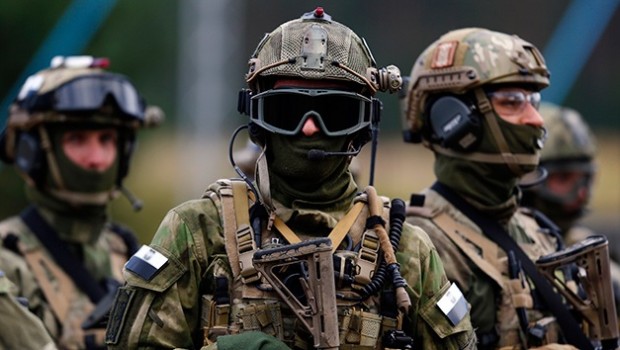
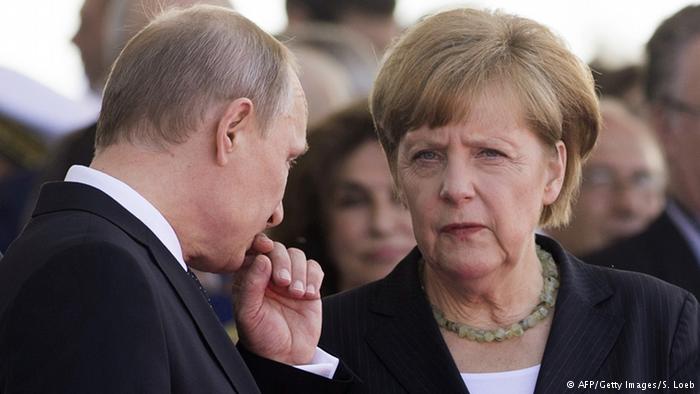
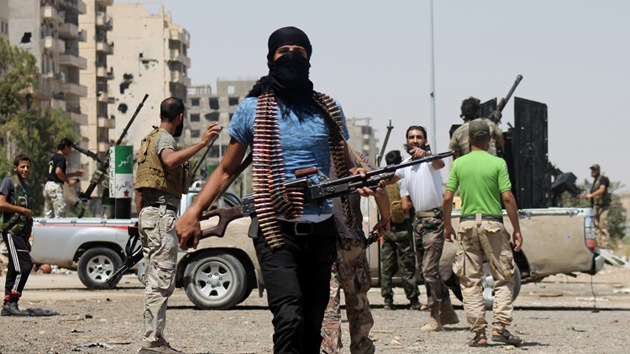
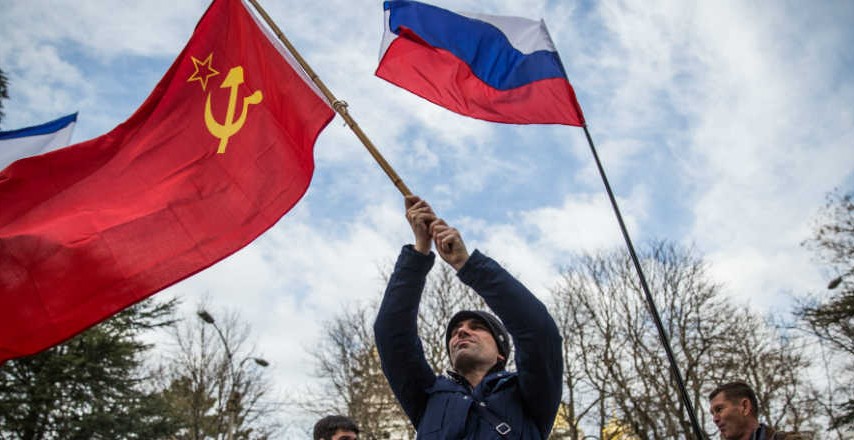
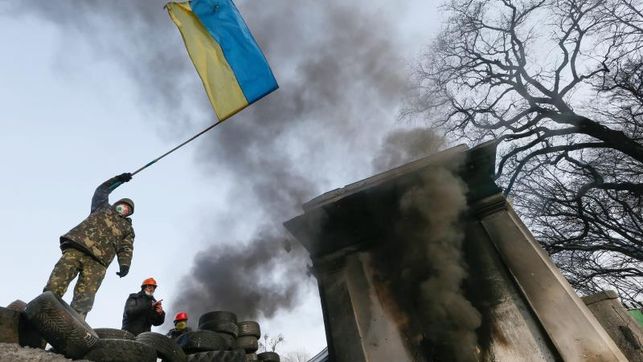
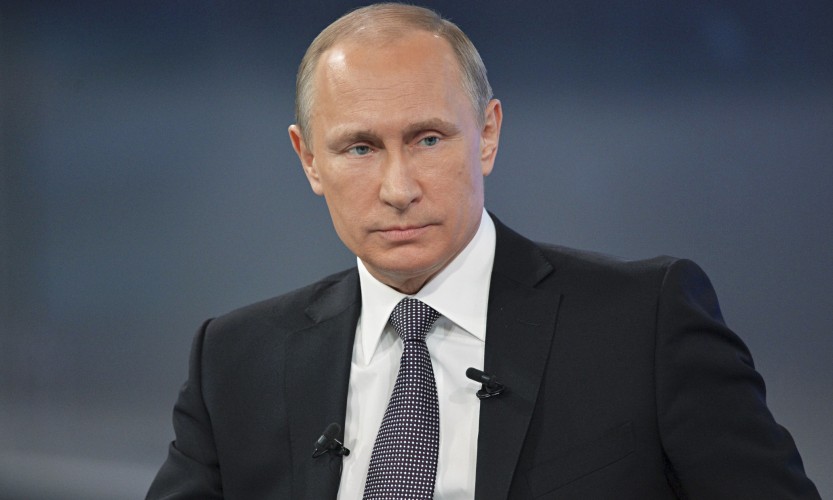

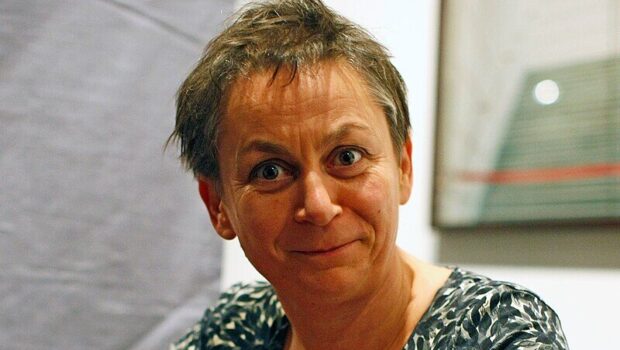


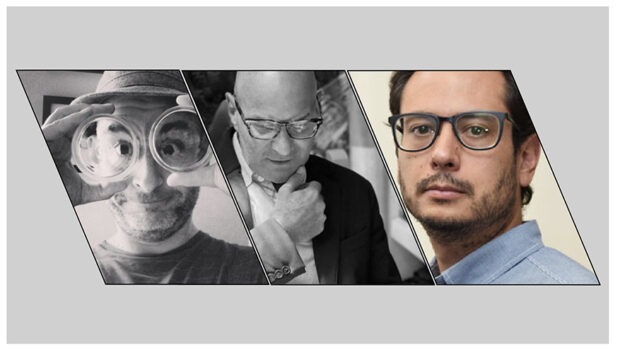

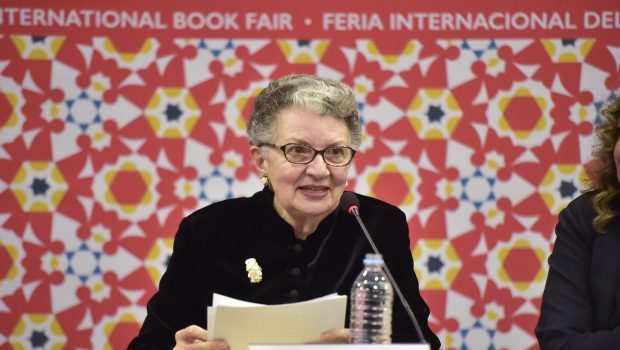

These are truly wonderfu images on the
topic of war.